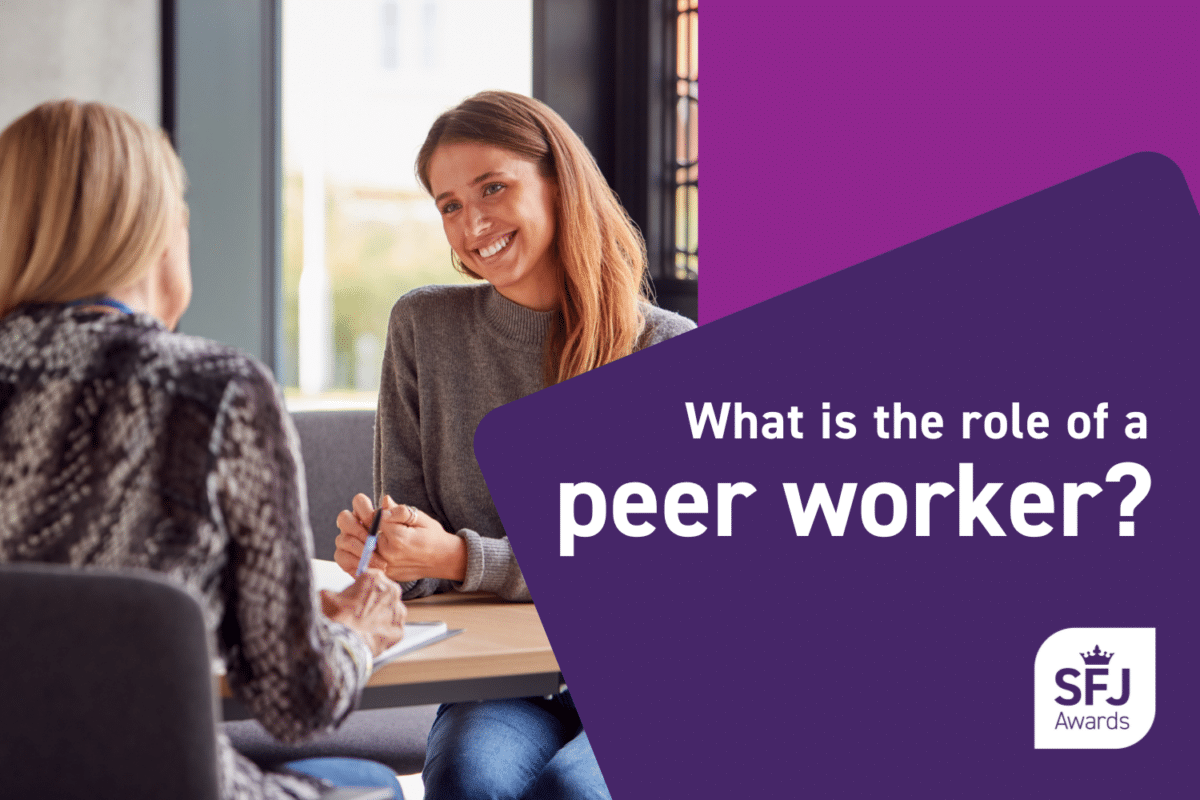What do peer workers do and how to start a career in peer work

Peer workers provide peer support to individuals using knowledge gained from their own lived experience of health and/or social problems and from potentially having used support services themselves in the past. They operate alongside other professionals in a variety of environments, such as hospitals and justice and community settings.
Where is this occupation found
Peer workers, also known as lived experience practitioner, peer mentor, or peer care navigator, can typically be found in various health, social, and community care service settings. where they provide support based on their own experiences. This includes:
- Healthcare – hospitals, community health centres, mental health clinics
- Substance use treatment services – rehabilitation centres, harm reduction programmes
- Justice and custodial care – prisons and probation programmes
- Not-for-profit and community-based organisations – victim support services or mental health support services, such as Women’s Aid and Mind
- Online services, such as National Voices and NHS Sharon
The unique perspective and experiences of peer workers help these services to build trust, reduce stigma, and enhance the overall quality of care and by providing close support for individuals facing healthcare or other challenges.
The day-to-day role
The daily role of a peer worker can vary depending on the setting and needs of the individuals they support, but it can often include the following elements:
Providing emotional support
Peer workers actively engage in conversation where they listen empathetically and without judgement, allowing individuals to share their experiences and feelings. Using their lived experience, the peer worker will connect with the individual, showing that they can relate to the challenges the person is facing.
Sharing lived experiences
By sharing their personal journey of recovery or experience with health and social issues, peer workers hope to inspire and motivate others and be a role model for healthy coping strategies and positive behaviours.
Navigating services and resources
Part of the role of a peer worker is to assist individuals in understanding and accessing available services, such as healthcare, housing support, and social services. It’s important for the peer worker to signpost the individual to resources, treatment options, or support groups that might be beneficial to them.
Facilitating peer support groups
Another part of a peer worker’s role may be to organise and run group sessions where participants can share experiences, offer support, and learn from one another.
Providing practical support
Peer workers may also help individuals set realistic goals for their recovery or personal growth, working with them to develop action plans. They may also provide support by attending medical or social service appointments with individuals who might feel anxious or need assistance.
Documenting and reporting
Peer workers must keep track of their interactions and progress with individuals they are supporting in order to inform their broader care team, while maintaining confidentiality. This may include updating supervisors or other colleagues on significant changes or concerns about the individual’s wellbeing.
The skills and personality traits required
The role of a peer worker heavily relies on leveraging personal lived experience to support others effectively. This unique perspective requires a specific set of skills that complement soft skills. Here are some of the essential skills of a peer worker:
Empathy and compassion
It’s crucial for a peer worker to understand and share feelings of others from a place of genuine care and concern. Peer workers must create a safe and supportive environment, allowing individuals to open up about their experiences without fear of judgement.
Effective communication
Those looking to get into peer work must have the ability to convey thoughts clearly, listen actively, and provide information in a way that is respectful and easy to understand. This is important for building relationships, facilitating group discussions, and offering support. Clear communication can also help in sharing personal experiences in a helpful and non-intrusive manner.
Storytelling and sharing lived experiences
The skills to effectively sharing personal experiences in a way that is meaningful, empowering, and supportive for others are an essential part of peer work. Utilising this skill will help individuals see the possibility of recovery and feel less isolated in their experiences.
Problem solving and goal setting
A key aspect of peer work is assisting individuals in identifying challenges, exploring solutions, and setting achievable goals. Being good at problem solving and goal setting allows peer workers to empower individuals to take proactive steps in their recovery or personal growth, building confidence and resilience.
How to become a peer worker
Approved for delivery since 2022, the Level 3 Peer Worker apprenticeship standard offers a formal route into peer work roles. The apprenticeship typically takes 15 months to complete – not including the End-Point Assessment (EPA) which typically lasts 3 months. There is a requirement that apprentices must have lived experience relevant to the role.
Apprentices will develop many skills during this apprenticeship, including how to:
- Develop and maintain mutual and reciprocal peer relationships
- Engage with and support families and carers
- Manage and prepare for ending the peer relationship
- Purposefully share lived experience within the context of the peer relationship
Access the full list of skills that will be developed through this apprenticeship route.
Resources and support
Explore these helpful resources if you’re interested in pursuing a career as a Peer Worker:
SFJ Awards – SFJ Awards are the End-Point Assessment Organisation (EPAO) for the peer worker apprenticeship standard. We provide information about the EPA process and how to prepare for it.
Gov.uk – The government website provides information on all apprenticeship standards in England. They have a helpful page of information about the peer worker standard.
IfATE – IfATE provides information on all the apprenticeship standards in the country. You can use this to explore more detailed information on the peer worker apprenticeship standard.
Find out more about this apprenticeship and which training providers offer this course →